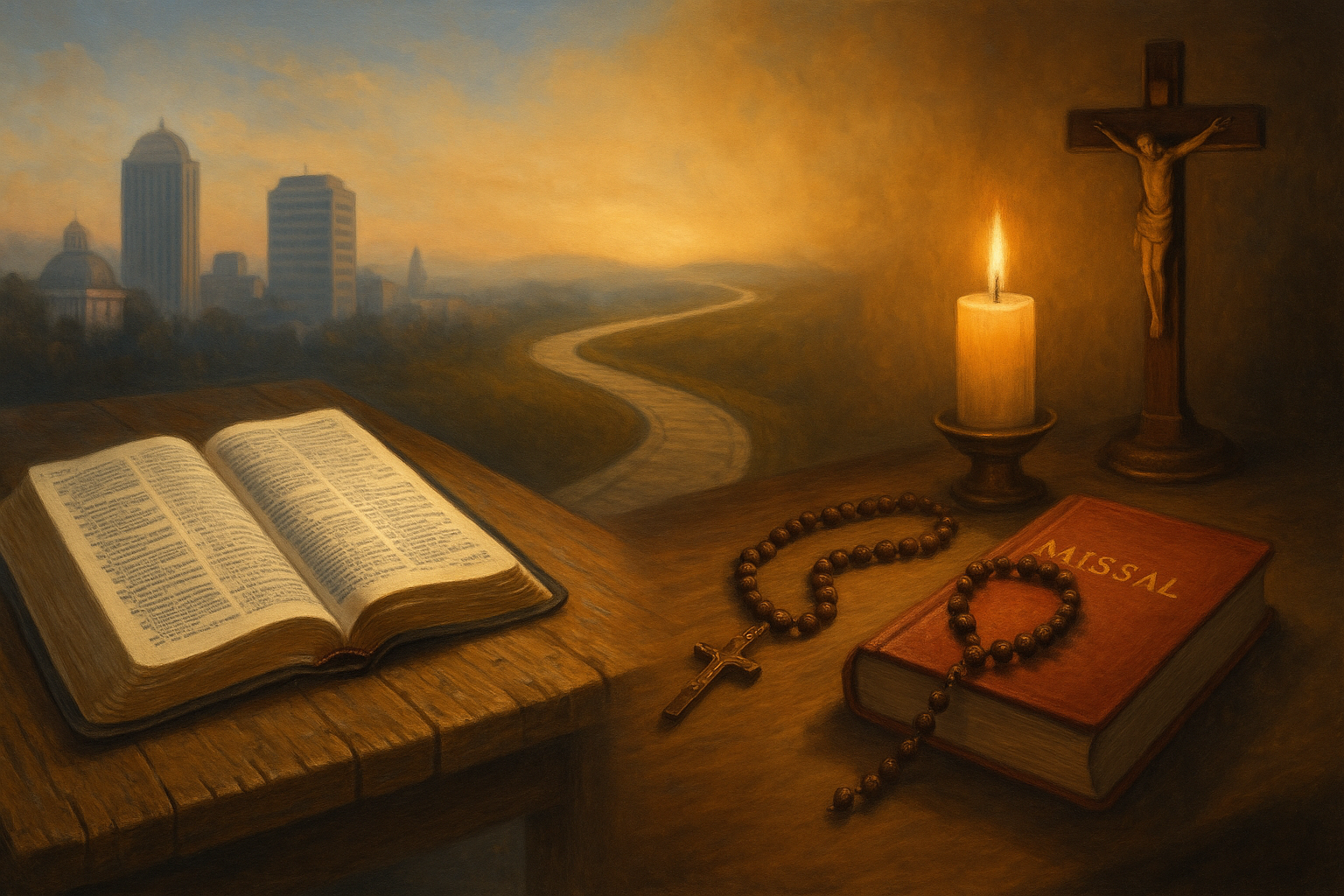What I Brought With Me: Protestant Gifts I Still Carry as a Catholic
I didn’t become Catholic by throwing away my past—I became Catholic by stepping into the fullness of the Christian story. These Protestant gifts haven’t lost their value. They’ve been deepened, reoriented, and completed in ways I never expected.
If God Is Love, Why Are We Fighting?
Theology has always been a touchy subject. Throughout human history, few things have sparked more division, wars, and destruction than our differing views of God. It’s strange to admit that something meant to bring us closer to ultimate truth — to goodness itself — has so often been wielded as a weapon. Yet history bears it out.
The Gift of Confession
One of the most controversial aspects of Catholicism for many Protestants is the sacrament of confession. When friends found out I had become Catholic, many said, “I don’t need to go to a priest because I can talk straight to Jesus about my sin.” While it’s true that Christ is our mediator to the Father, I believe that confession within the Church holds a special significance.
Coming Home
In the summer of 2007, I found myself in the middle of the desert, maintaining the berm around a small outpost near the Iraq border. It was just me and another soldier working together when we saw the wreckage of a Humvee that had been hit by an IED being pulled onto the post. We walked over and stood silently beside it, unable to find any words for what felt like an eternity. The blood of soldiers still stained what was left of the seats. Someone’s sons and daughters had lost their lives, thousands of miles away from home. They had paid the ultimate cost of war.
Choosing Your Team
Most of us have a favorite sports team. Chances are, you didn’t choose that team; your loyalty was passed down through generations of family tradition. This is especially true in Alabama, where allegiance to our state’s college football teams is often inherited. If you were to move here, one of the first questions you’d be asked is, “Will you root for Alabama or Auburn?”
Why I Became a Calvinist
In my first blog, I mentioned that I once held Calvinistic views on salvation. Calvinism is based on the teachings of John Calvin, a theologian who had a significant impact during the Protestant Reformation. While Calvinism encompasses a broader theological system, most people identify as Calvinists if they adhere to five core beliefs about salvation: total depravity, unconditional election, irresistible grace, limited atonement, and the perseverance of the saints. My journey to this theological framework was somewhat unconventional.


